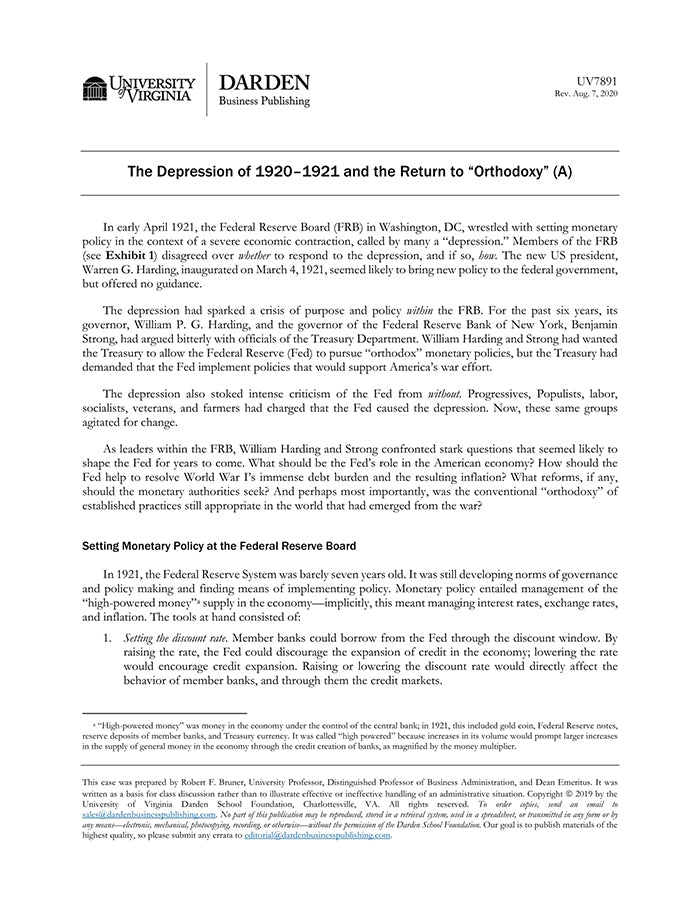The Depression of 1920-1921 and the Return to "Orthodoxy" (A)
受取状況を読み込めませんでした
In March 1921, the Federal Reserve Board (FRB) wrestled with setting monetary policy during a severe economic contraction, called by many a depression. FRB members disagreed over whether to respond to the depression, and if so, how. The depression had sparked a crisis of purpose and policy within the FRB. For the past six years, FRB leaders had been trying to get the Treasury to allow the Federal Reserve (Fed) to pursue "orthodox" monetary policies; but the Treasury had demanded that the Fed implement policies that would support America's war effort. The depression also stoked intense criticism of the Fed from Progressives, Populists, labor, socialists, veterans, and farmers, who charged that the Fed caused the depression, and were now agitating for change. The FRB leaders confronted questions that seemed likely to shape the Fed for years to come. What should be the Fed's role in the American economy? How should the Fed help resolve World War I's debt burden and the resulting inflation? What reforms, if any, should the monetary authorities seek? Perhaps most importantly, was the "orthodoxy" of established practices still appropriate in the world that had emerged from the war?
【書誌情報】
ページ数:38ページ
サイズ:A4
商品番号:HBSP-UV7891
発行日:2019/10/15
登録日:2020/1/23


